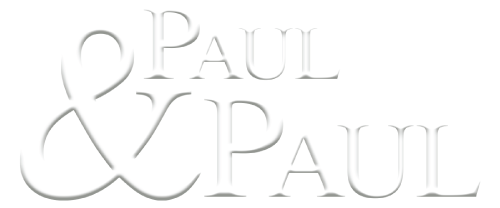In the ever-evolving landscape of technology, the need to protect intellectual property has become more important than ever. For businesses in Philadelphia’s thriving software development industry, securing patent protections for key innovations in software is a strategic move, providing a competitive edge.
A patent is a legal safeguard granting an inventor exclusive rights to their invention for a fixed period of time, usually 20 years from the patent application filing date (not the date the patent was granted). The patent shields your innovation from being reproduced, used, or sold in a manner you don’t approve of. In the United States, there are three types of patents, all governed by the U.S. Patent and Trademark Office (USPTO): utility, design, and plant. Software patents fall under the designation of utility patents.
Is Your Software Patentable?
Under U.S. patent law, not every invention is eligible for patent protection. For a Utility patent, the invention must fall into one of the following categories: processes, machines, manufactures, or compositions of matter. Software generally falls under the category of processes.
The landmark 2014 U.S. Supreme Court case Alice Corp. v. CLS Bank International shifted the legal landscape surrounding software patents. This decision put into law that abstract ideas implemented into practice using a computer are not eligible for patent protection unless they include an inventive concept that would transform the abstract idea into a patentable innovation. The experienced software patent team at Paul & Paul is well-prepared to help you navigate the implications of this case, emphasizing the fact that your innovation goes far beyond implementing an abstract idea on a computer.
Is it Novel, Non-Obvious, and of Utility?
There are three core requirements that your software must meet in order to qualify for a patent: novelty, non-obviousness, and utility.
Patents are only necessary when an invention is the first of its kind – a new discovery that wasn’t publicly disclosed or patented in the past. Novel is the patent world’s jargon for something completely new. Not only does your software need to be novel to be eligible for a patent, but the pressure is on you (and your experienced Philadelphia software patent attorney) to establish that your invention is novel in your patent application. This involves conducting – our outsourcing – a process called a prior art search, which sifts through existing and expired patents to show that yours is the only one of its kind on the market. This step is not only essential for a robust patent application, but it also gives you, the inventor, an opportunity to make some tweaks if you find something too similar already on the market.
Secondly, your software needs to be non-obvious. While this may seem like a trivial requirement, the standard isn’t non-obvious to the average person of average education and intelligence. Rather, the standard is that your software must be non-obvious to your skilled colleagues in the software development field. Your software needs to represent a significant advancement in the field beyond existing knowledge and standard practice. This also means your patent can’t be an obvious modification or combination of existing patents on the market.
Software patents fall under the umbrella of utility patents. As the name suggests, utility patents require that they are useful. They must serve a useful purpose. An effective software patent application must explain how to use your software for its intended purpose and demonstrate that your software accomplishes the intended purpose. This requirement was put in place to ensure that patents are something that can be applied and used and aren’t just abstract and theoretical concepts. Breakthroughs are revolutionary, but a patent is only necessary when that breakthrough becomes practical.
Is it Adequately Described?
A patent application cannot succeed without a clear and sufficient description. The description needs to be so detailed that another person, equally skilled in the field of software development, can replicate it based on the submitted description alone. For advancements in software, a successful description will likely involve detailed algorithms, flowcharts, and data. A skilled and seasoned Philadelphia software patent lawyer can help ensure that your patent description meets the stringent description requirements, increasing your odds of success.
Is Your Patent Application Strong?
The success of a software patent application largely hinges on the quality of its drafting. Patent law is incredibly complex and nuanced, with lots of strict rules. Patent applications are full of meticulous details that must be done right. There’s even a rule for the application’s margins. An experienced Philadelphia software patent attorney can prove invaluable in guiding you through the complex world of patents, as one mistake can result in a devastating career setback. We will help define the boundaries of your innovation with precision.
The Importance of an Experienced Philadelphia Software Patent Attorney
Patent law is complex, with nuanced requirements. Making a patent application successful requires a skilled and seasoned advocate with meticulous attention to detail. Your innovation in the software development field, driven by skill and hard work, deserves the fullest protection available under the law. Don’t jeopardize your hard work by trying to meet every nitpicky requirement alone. Turn to someone who knows the rules and who has a proven track record of success. Turn to an experienced Philadelphia patent law team who will put their legal expertise and hands-on patent experience to work for you.
What sets Paul & Paul apart is our steadfast commitment to protecting inventors’ intellectual property. Our team, built on years of experience and a history of success in the field, not only knows the law, but we also have strong academic credentials across non-legal disciplines allowing us to understand your software patent in a way that most other attorneys cannot. We proudly serve clients in Philadelphia and beyond. Contact us or call us at (215) 568-4900 today so we can get you scheduled for your free case evaluation.
